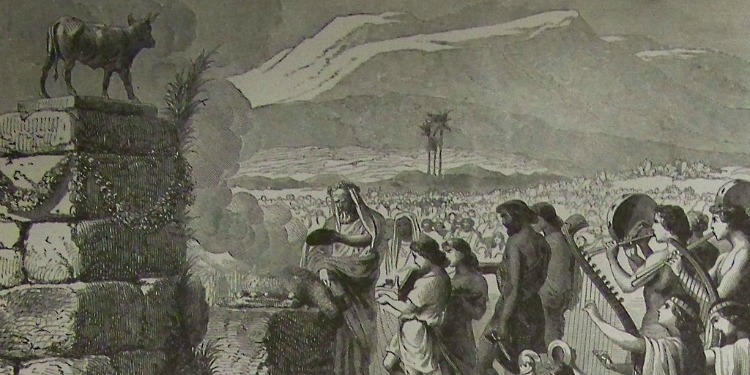Rising Up
The Fellowship | October 6, 2019

Rise up. “When you take a census of the Israelites to count them, each one must pay the LORD a ransom for his life at the time he is counted. Then no plague will come on them when you number them.”—Exodus 30:12
Jews around the world are observing a time of intense reflection, repentance, and seeking forgiveness known as the Days of Awe, or Ten Days of Repentance. Our devotions during this time relate to this most holy time on the Jewish calendar, which culminates on Yom Kippur, the Day of Atonement. To learn more about the Jewish perspective on atonement and its connection to atonement in the Christian faith, download our complimentary Bible study.
What is the worst thing in the world that could ever happen to a human being? To sin. By sinning, we damage ourselves both in this world and in the eternal world to come. Our Bible verse today comes from the Torah portion known as Ki Tisa, meaning “when you raise up,” as in “when you raise up the Israelites.” The interesting thing about this portion is that in it we read about the horrible sin of the golden calf, committed by the children of Israel just as they were about to receive the Ten Commandments.
So the question is why, of all Torah portions, is this one called Ki Tisa? If anything, the theme of this selection is sinking downward into sin!
Let’s back up a minute. You may have noticed that the verse in Exodus 30:12 reads: “When you take a census of the Israelites . . .” And this is how both Jews and Christians understand the opening verse to this week’s selection. However, the Jewish sages point out that the literal translation of Exodus 30:12 is: “When you raise up the Israelites . . .” This is no mistake, the sages explain. The use of the term “raise up” provides us with an important insight into the Torah portion in general and sin in particular.
Sin, indeed, is the worst thing in the world that can happen to a person. But the best thing in the world that can happen to any human being is repentance.
While we would all prefer to avoid sin altogether, once the inevitable happens – as it says in Ecclesiastes: “There is not a righteous man on earth who does what is right and never sins” (7:20) – we can choose the ultimate outcome. Either we can remain stuck in our sinful ways and harm ourselves for all of eternity, or we can choose repentance and turn our descent into an ascent.
Repentance not only repairs our relationship with God; it enhances it!
Now we can understand why the Torah portion that describes one of the most infamous sins of all times as a “raising up.” The Israelites did repent and their bond with the Lord was stronger than before. In fact, the day that God finally accepted the repentance of the Israelites and forgave them has become a powerful day for all time. Today, we call that day Yom Kippur, the Day of Atonement. This day, every year, is an opportune time for people to receive forgiveness and grow exponentially closer to God.
The power of repentance is available for us every day and at all times. Is there something bogging you down? Climb out of the rut and upward to God. Repent and raise yourself higher. Every fall can keep you down. Or it can inspire you to rise up and stand taller than ever before.
